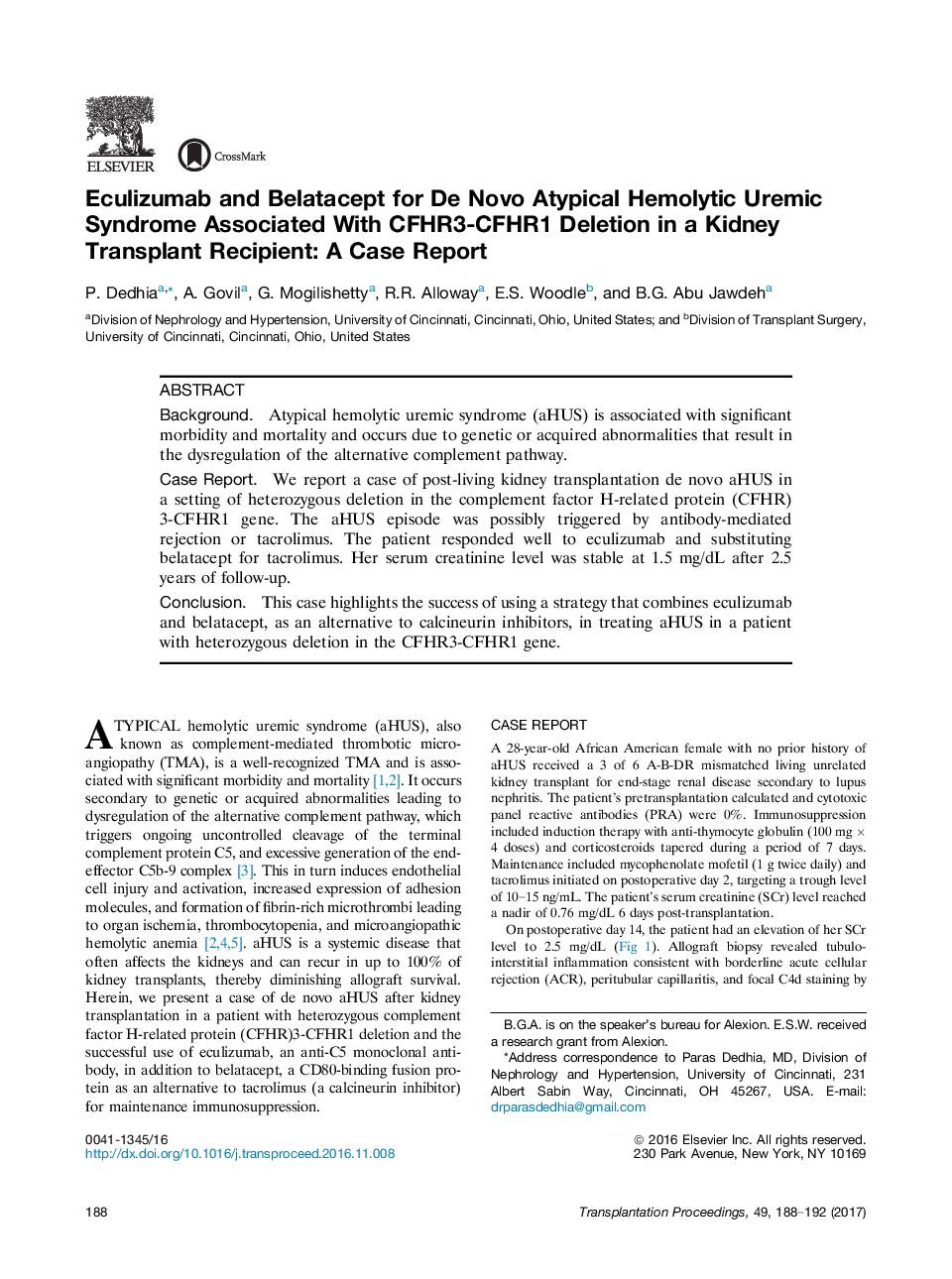| Article ID | Journal | Published Year | Pages | File Type |
|---|---|---|---|---|
| 5729316 | Transplantation Proceedings | 2017 | 5 Pages |
â¢We studied the efficacy of Eculizumab in reversing aHUS and salvaging allograft.â¢We reported on the successful use of Belatacept as alternate maintenance immunosuppression for possible tacrolimus-induced aHUS.â¢We reported on the role of heterozygous CFHR3-CFHR1 deletion in increasing susceptibility for TMA.
BackgroundAtypical hemolytic uremic syndrome (aHUS) is associated with significant morbidity and mortality and occurs due to genetic or acquired abnormalities that result in the dysregulation of the alternative complement pathway.Case ReportWe report a case of post-living kidney transplantation de novo aHUS in a setting of heterozygous deletion in the complement factor H-related protein (CFHR)3-CFHR1 gene. The aHUS episode was possibly triggered by antibody-mediated rejection or tacrolimus. The patient responded well to eculizumab and substituting belatacept for tacrolimus. Her serum creatinine level was stable at 1.5 mg/dL after 2.5 years of follow-up.ConclusionThis case highlights the success of using a strategy that combines eculizumab and belatacept, as an alternative to calcineurin inhibitors, in treating aHUS in a patient with heterozygous deletion in the CFHR3-CFHR1 gene.
